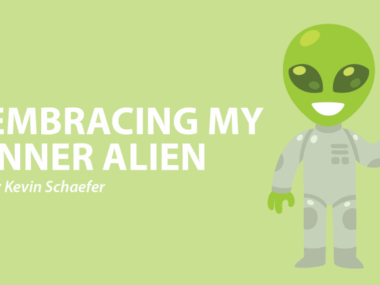I Don’t Want a World Without SMA. Here’s Why
Written by |

When I was diagnosed with SMA, my parents were confronted with a pivotal choice: stay in Singapore or move the three of us to the U.S., where they’d heard there might be an experimental gene therapy that could treat me.
It’s a decision that would have altered the course of our lives. However, my parents never got to make the choice for themselves. The effects of the 1997 Asian financial crisis were still rippling outward, and we were caught in a wave that depleted our finances. Without the money we needed, we couldn’t immigrate to the U.S. Instead, we remained in Singapore.
Throughout my life, I’ve wondered what it would’ve been like had my parents been able to afford the move. Though I dreamed of seeing cities like Los Angeles and New York, our friends and family lived in Singapore. We would’ve been isolated.
Additionally, would U.S. doctors have been better equipped to treat me than those I’ve had in Singapore? What sort of employment would have been available for my dad, given his broken English? Would my mum have been able to cope without the support system of her friends and relatives? Would I still have my little brother? How would the lens of the “sweet land of liberty” have shaped my perspective compared with that of the Lion City?
Last month, I watched a video by YouTuber Hank Green about gene editing. In it, he offers a four-minute argument against editing the genes of future generations to expand their intelligence. To sum it up, Green questions whether we know what we mean when we talk about intelligence as a trait or a combination of traits. He believes intelligence is “being well-suited to the world in which you happen to have been born into.”
“We don’t know, right now, what traits are going to be useful to the people of the future, because their world is going to be different from ours,” Green notes. He points out that he has ADHD, sensory processing issues, and an inability to read as fast as a ninth grader. Yet a combination of his environment and various means of support have turned his “liabilities” into assets in our world.
I can’t help but draw parallels between Green’s argument and the conundrum my parents faced. The acts of gene editing and immigration share an underlying consequence: an irrevocable change in a person’s life and perspective.
Which brings us back to SMA.
At the start of Green’s video, he mentions that usually, conversations about gene editing start with whether we should edit diseases out of people. Thus, my mind jumped to SMA.
“Oh my god,” I thought, “a potential future where SMA doesn’t exist.”
It’s a thought I expected to be accompanied by joy, relief, and perhaps envy. A world where no one would grieve their bodies or their loved ones because of SMA! Isn’t that what we’ve striven for?
But as I watched Green’s video, I realized that a world without SMA isn’t a world I want. My tears grieved the loss of it, because SMA has shaped me into who I am, just as my homeland and loved ones have also shaped me. It’s both a blessing and a curse, a liability and an asset.
I don’t know the Sherry who would’ve grown up in the U.S. I don’t know the Sherry who might’ve lived without SMA. But I like the Sherry who’s writing this column, whose perspective wouldn’t exist without the existing broad and fine strokes in her life’s landscape. And although people like me were born into an inaccessible world not readily suited to us, we have nonetheless carved spaces — like this site — for ourselves and others.
As my friend Brianna Albers wrote, “We have one foot in the real world and one foot in this space of possibility.”
I immediately thought of Brie after watching Green’s video. I knew she’d understand the tangled mess of emotions I felt about SMA and the ethics of erasing disability, which are too complicated to fit into an 800-word column. Talking to her helped me disentangle my thoughts.
On days when my chronic pain is too much, when grief is plain on my family’s faces, and when I can’t see someone loving me romantically because of my spinal deformity, I do want to be cured. But on the days when something like a YouTube video reminds me what a gift my life has been? Like Brie, I’ve concluded I’d miss the perspective SMA has given me.
“The expansiveness of disability, the sheer possibility that is ‘misfitting,’” as she calls it.
In a 2017 op-ed for The Washington Post titled “Please don’t edit me out,” former Executive Director of the National Council on Disability Rebecca Cokley describes disability groups as having rich cultures, with traditions and histories. Whatever the future holds, I hope those perspectives are passed down.
***
Note: SMA News Today is strictly a news and information website about the disease. It does not provide medical advice, diagnosis, or treatment. This content is not intended to be a substitute for professional medical advice, diagnosis, or treatment. Always seek the advice of your physician or other qualified health provider with any questions you may have regarding a medical condition. Never disregard professional medical advice or delay in seeking it because of something you have read on this website. The opinions expressed in this column are not those of SMA News Today, or its parent company, Bionews, and are intended to spark discussion about issues pertaining to spinal muscular atrophy.







Patricia
I’m sitting here stunned into an emotional overdrive that your story tells of the turmoil that has brought you to who you are today.I am so proud of you and your family for making decisions that I’m sure we’re not easy but turned out to be what has formed you as a person in a world that tells us a box is just a box.Always continue to be who you are,you are here for a purpose and-always remember boxes will degrade where as you will not please keep writing. Sincerely Patricia